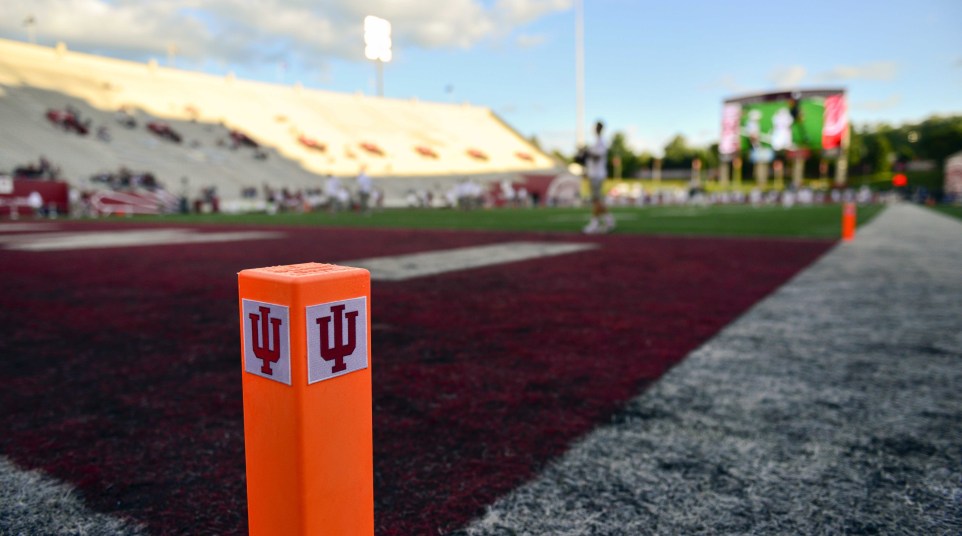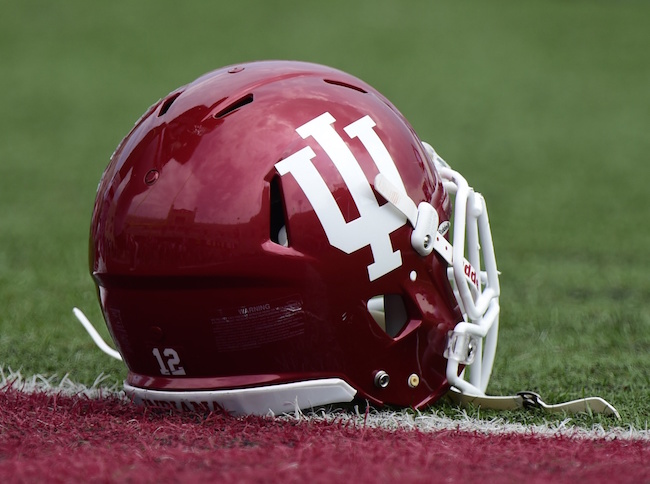Every college program in America should adopt Indiana's new sexual violence policy
Sometimes, a new idea comes along that just makes sense. It isn’t necessarily complicated or revolutionary, but at the same time, it makes one wonder why it took so long for it to come to fruition.
That was the thought I had when I heard about Indiana athletics’ new policy.
No longer will any IU athletics program accept “any prospective student-athlete — whether a transfer student, incoming freshman, or other status — who has been convicted of or pleaded guilty or no contest to a felony involving sexual violence.”
Sexual violence, by IU’s definition, consists of “any form of dating violence, domestic violence, rape, sexual assault or sexual violence as defined by the Indiana University policy on sexual misconduct.”
That seems like a basic premise. An employer background check would do the same before making a six-figure investment into a potential employee. (Let’s not get into a discussion about whether or not student-athletes are employees of their university.)
So then why is IU breaking down barriers — or putting them up — by instituting this policy to ban prospective student-athletes with any history of sexual violence?
IU shouldn’t be the first, nor should it be the last.
Indiana’s move could close some doors in recruiting. That’s obviously the big reason that more programs haven’t taken a hard stance against sexual violence for prospective student-athletes. The thinking always seems to be “the good outweighs the bad.” After all, these are high stakes we’re talking about here.
If this policy was universal across all of college sports, however, it would create an even playing field. As soon as a recruit or any student-athlete either pleads guilty, pleads no contest or is convicted of a sexually violent crime, that recruit is off the market.
Why shouldn’t they lose the opportunity for a free or discounted college experience? College athletics are supposed to be a privilege. Programs shouldn’t turn a blind eye to their history and invest hundreds of thousands of dollars into them. They shouldn’t feel like they need to roll the dice on that kid for their own job security, either.
Wait, but what about second chances? Aren’t these just high school kids making mistakes?
Yes, which is why they can still apply to get into the university, just not as an athlete. Earning a degree at a four-year college is certainly a second chance.
RELATED: Three Spartans, staffer suspended during ongoing sexual assault investigation
What about the kid who can’t afford school without that full-ride scholarship? How is that kid supposed to make it?
Student loans are a thing (I’ll be paying mine off until I’m 30). Junior college is an option, too.
What if neither of those scenarios work?
Well, maybe that should’ve crossed the person’s mind before the act of sexual violence was committed.
Sexual crimes in college football alone are far too frequent.
If you don’t believe that, look at what went on at Baylor the last few years. A football program doesn’t have 52 rapes in a three-year stretch if it does any actual background check before a recruit steps on campus.
Need some examples that hit closer to home?
Look at a program like Michigan State, which currently has at least four players and an assistant coach under investigation (not charged) for two different sexual assault cases. Then there’s Minnesota, which had a handful of players and even a recruit involved in an alleged sexual assault last year. Go back three years ago, when a Wisconsin recruit was sentenced to one year in prison after he sexually assaulted a girl while on a recruiting visit.
Sexual violence isn’t limited to Power Five programs.
At P.J. Fleck’s old program, Western Michigan, a recruit had a scholarship offer from the Broncos despite the fact that he had four separate sexual assault cases against in him in his home town. It wasn’t until he was accused of home invasion and robbery — while he was on the WMU roster — that the coaching staff said it found out about his sexual violence history.
One of the rape victims was shocked that WMU “recruited a monster.” An attorney of one of the victims couldn’t believe that WMU claimed it “had no way of knowing the player’s history.”
“It was very easy for us to find all of the previous allegations against him, which included sex crimes as well as various other allegations, so it’s hard for me to understand how a university was not able to check on that same information,” said Elizabeth Well (via WOODTV), legal director for the Ohio Crime Victim Justice Center.
RELATED: Purdue dismisses three football players involved in alleged sexual assault
Therein lies the problem with the current standard across college athletics. Any program can look stern by dismissing a student-athlete after it commits an act of sexual violence on its campus. But there’s nothing stopping the program from going back to the well and turning the same blind eye to the next recruit with four sexual assault allegations against it.
Indiana’s new policy doesn’t prevent sexual assault from happening. Unfortunately, there’s no cure-all for that.
What Indiana’s new policy does do is reduce the likelihood of sexual violence. It also prevents recruit ‘X’ from committing a sexual crime in high school, laying low at a junior college and ultimately transferring to Indiana. That’s not a second chance. That’s a loophole.
The SEC was actually the first conference to adopt a policy against prospective transfers with a history of sexual violence. In 2015, the SEC instituted a policy that prevented member institutions from accepting transfers athletes with a history of “serious misconduct” — sexual assault, domestic assault or other forms of sexual violence (via Indystar).
The B1G would be wise to follow suit. The conference would be even wiser to adopt IU’s policy. Shoot, so would the NCAA.
How’s that for a basic premise?

